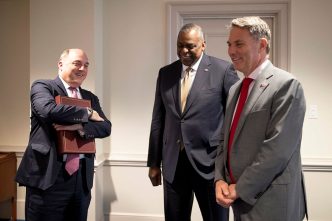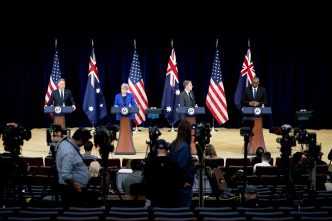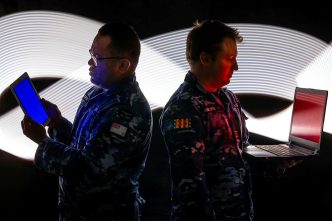Last week’s announcement of the ‘optimal pathway’ for Australia’s nuclear-powered submarines has provoked further commentary on AUKUS. The breadth of the arguments illustrates how once stable strategic certainties have become fractured and contestable. There’s debate …
If you work in the federal government in Australia, you know there’ll be occasions when ministers call for ideas—and kudos to Minister for Home Affairs Clare O’Neil for grasping the opportunity presented by the Optus …
From its inception, the AUKUS pact has been wrapped in expectations. Fundamentally, it is a technology and capability agreement—an accelerator. That may sound mundane but it is incredibly challenging. To realise its promise, three sovereign …
Every review of Australia’s defence policy and capability is imbued with hope for change. The defence strategic review that’s now in its final months is no exception. Some announcements have already been made, following delivery …
Each AUSMIN meeting, when the foreign and defence ministers from Australia and their American counterparts get together, generally each year, is marked by a communiqué. These statements signal the matters of mutual agreement and shared …
The rapidly changing strategic environment is prompting reassessments of Australia’s defence posture and capability. Rather than simply reviewing equipment purchases and stepping up training schedules, there’s cause for a deeper re-evaluation of the strategic logic …
Despite information security figuring in the defence and national security consciousness since well before the end of the Cold War, we remain in the early days of cyber. For some years after September 2001, when …
Enabled by digital technologies and fuelled by geopolitical competition, hybrid threats in the Indo-Pacific are increasing in breadth, application and intensity. Hybrid threats are a mix of military, non-military, covert and overt activities by state …
The early days in any great undertaking can be chaotic. The AUKUS partnership between Australia, the United Kingdom and the United States was announced last September, and it may be a little premature to worry …
The way cyber actions have played out in the Russian invasion of Ukraine hasn’t followed the anticipated script. The attacks on Ukrainian government agencies and banks in early and mid-February were not unexpected, given Russian …
Russia has made a speciality of integrating its cyber efforts with broader offensives. It’s been refining the practice, as was evident in its invasion of Georgia in 2008 and Ukraine in 2014, and now in …
In the early days of cybersecurity, organisations adopted the model of Berlin during the Cold War: a wall high enough to prevent unwanted border crossings and a Checkpoint Charlie to regulate the rest. But the …













